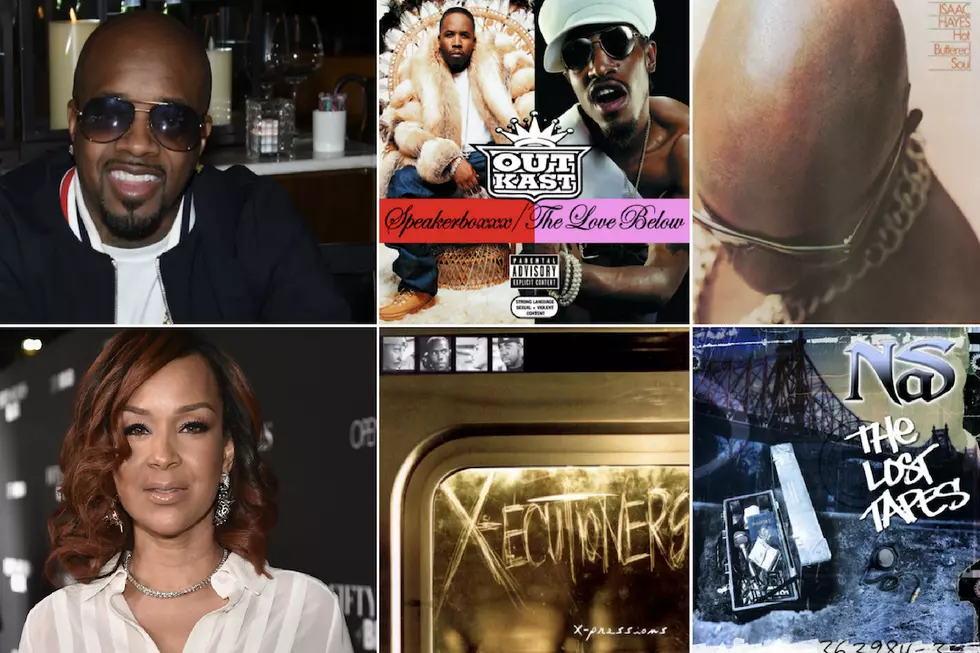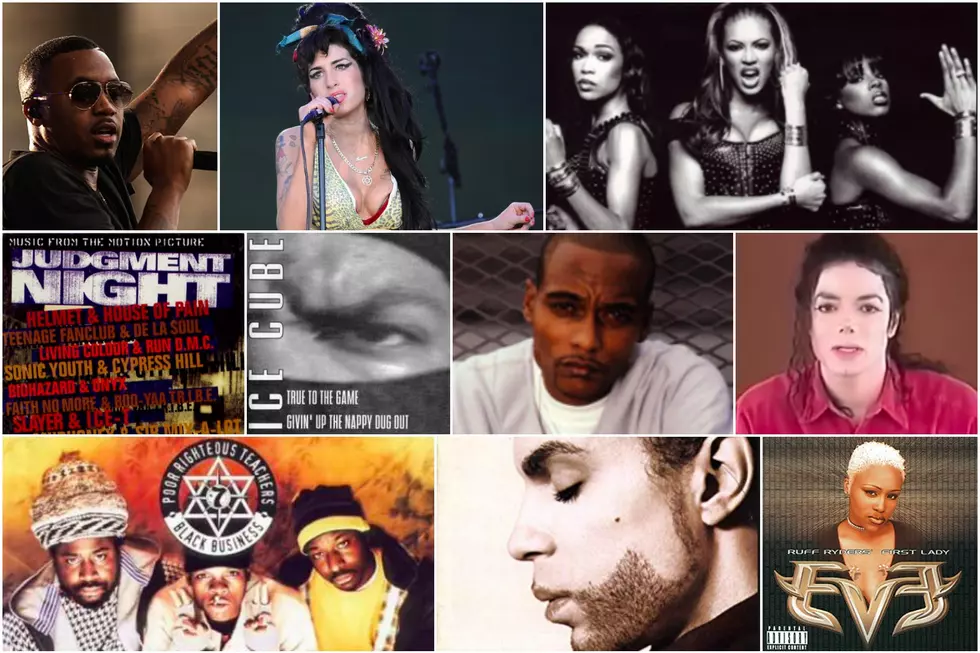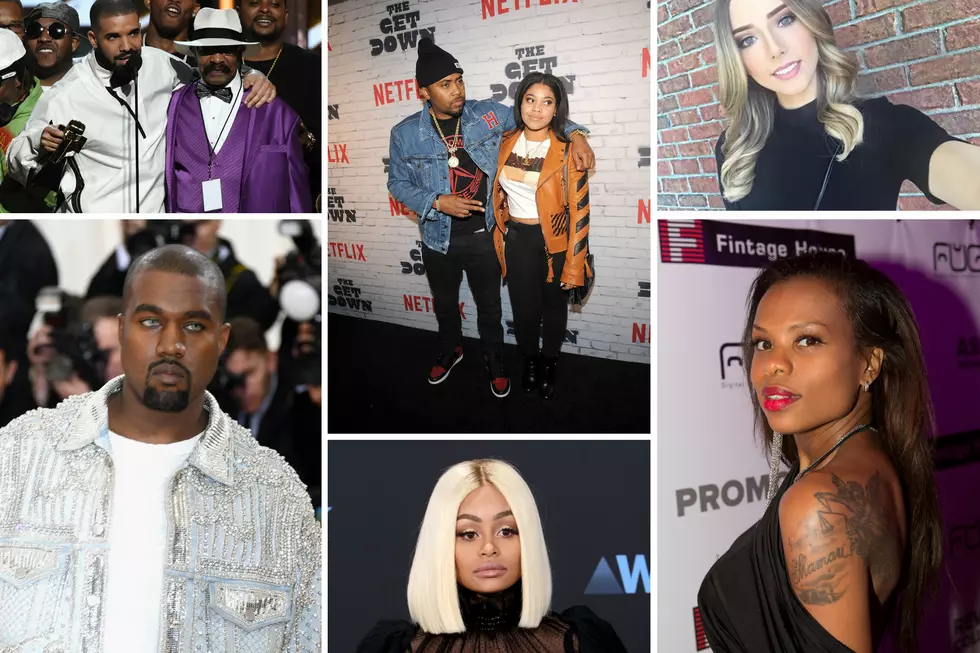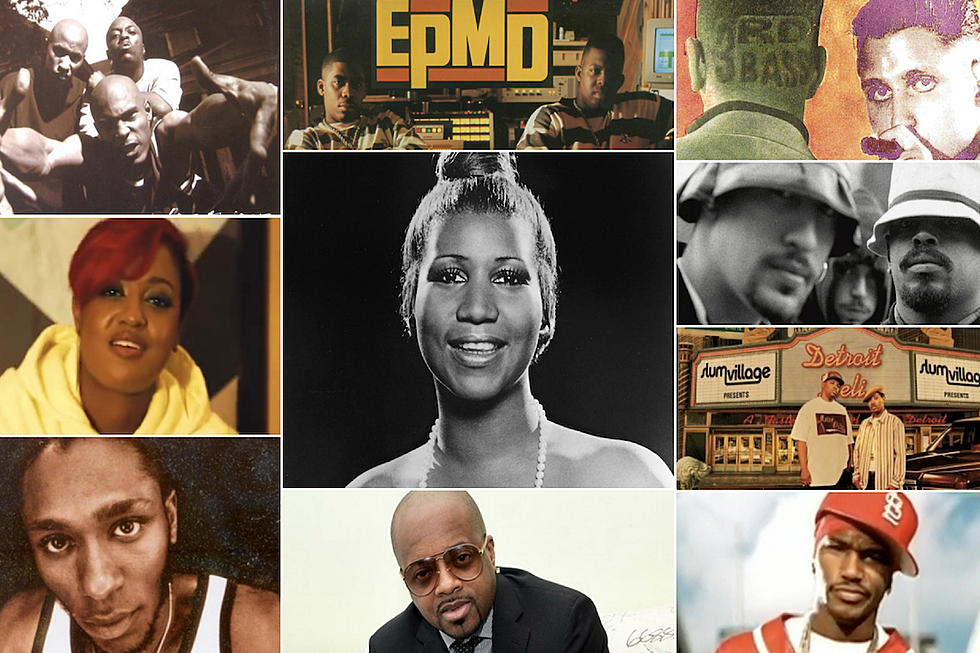
Nas Unloads on Great Recession Hip-Hop
Nas has been one of hip-hop's great figures since he first hustled onto the scene with the 1994 classic 'Illmatic,' an album of gritty street stories about his teen years in the Queensbridge projects that became symbolic of rap's '90s golden age. Eventually, the former Nasty Nas would become wealthy and start rapping about his success on tracks like his Diddy collab 'Hate Me Now.'
Though he spent a few years wandering the artistic wilderness, Nas stormed back strong in the 2000s, and after a summer spent performing 'Illmatic' on the retro-centric Rock the Bells tour, Nas is prepping his 10th album, 'Life Is Good.'
During a recent Toronto visit, Nas spoke to The BoomBox about returning to his old-school grit and offered his take on new school MCs like Drake and Odd Future. He also discussed how hip-hop's "voice of the street" became all about the Maybachs and whether wealth-flaunting rhymes are cool during an economic crisis.
How was it performing 'Illmatic' on the Rock the Bells tour?
It takes me back in time, to the great time when I was first getting in the game.
Making such a landmark record can often be an albatross. You're now working on your 10th record, but is there a lot of pressure being the guy who made 'Illmatic'?
I used to get pressured a lot by media, critics, fans. Sometimes the pressure worked, and it f---ed me up. But I still did what I had to do -- and I still did it my way. And that's what I'm most proud of. It's a beautiful thing to share with the people that love that album or that song, but we have to move on.
Why do you think the album continues to resonate so strongly?
What it represented was a breath of fresh air to music, and it became a template for lots of other albums. So it's just a great piece of work that was real.
Watch Nas' 'Nasty'
When you look at the number of classic rap records that came out in the 1990s, it's kind of mind-blowing. Why do you think hip-hop experienced such a golden age during that decade.
Because the pioneers who were incredible artists were still kind of swept under a rug by the rest of the music industry. So in the '90s, my generation of rap saw what the '80s rappers went through, and we realized no one wants us to get to the top. The music is like the voice of the street, and when you try to paint a pretty picture of the city of New York or California, here come these guys in the street with this music that tells you a different side that people don't want you to know. So we embraced it. We embraced the rebellious state, and out of that came honest, real feelings, and uncompromised s---.
Tell me about your upcoming record 'Life Is Good'?
I released a record this summer called 'Nasty,' and it was the vibe of the '90s. To me, it was a sound that kind of inspired Kanye and Jay-Z's ['Watch the Throne']. Let's get back to hip-hop. I needed to tap into that side of me again. It was just screaming to come out. I'm excited. I want this to be the best album of the year.
The thing about 'Watch the Throne' is that they're so successful, so rapping about themselves means rapping about their success. It's no longer, as you called it, "the voice of the street." Do you think that has hurt hip-hop in general?
You have a choice when you're someone that has had crazy success. You can embrace it on a record and say, "Yo, I got girls, I got Maybachs, I just gotta tell somebody, this s--- is unbelievable!"
And the other side of that, "Yo, what are you doing, man? We don't have Maybachs, my cable's off, my lights are off, and y'know, I'm struggling." Well then, maybe that record is just not for you. Or maybe that record can be some kind of an inspiration for you. Not to go out and buy a Maybach, but to listen to what their life is about. Maybe you want to write a script about it. Maybe you want to start a clothing line for these successful people to invest in or to become a consumer of. It can be inspiration, or it can be waving money in your face. It's all about how a fan takes it.
But when it comes to artists, I think they have a right to say whatever they feel like saying. I talk about money from time to time. That's what hip-hop has always been. If you don't want to hear it, don't buy it.
But in the 1990s, when Chuck D was calling hip-hop "the black CNN," rappers like yourself on 'Illmatic' were telling personal stories that were also representative of listeners. We're now three years into the Great Recession, and it's really hard, especially in the black community, yet we've got all these rappers talking about how rich they are.
Too many artists rap about money. I think that's the problem. I don't think everyone should just do it, but that's what people want to hear. When you're in a club, you don't want to hear the blues. You don't want to hear my life is messed up. You want to hear racks on racks on racks. Even if you don't have thousands of dollars in your pocket, you want to feel like you do, and those songs make you feel like you do.
Early hip-hop records like Sugarhill Gang talked about [those] things. There were no jobs allowed for blacks in the early '80s. Even now in a lot of instances, but it was really bad in the '80s. So rap then was fantasizing about these things, and it was cool. Now hip-hop artists, especially artists from my generation, remember the fantasy of wishing we could have it. Now we do. And it's a flip side. So now you're saying, "I want a color TV so I can see the Knicks play basketball." That's in the Sugarhill Gang record. That's a luxury in the early '80s -- a color TV. Now, guys are damn near putting out their own brands on television or computers or whatever.
'Illmatic' really did represent not just yourself but a whole community of people who were coming out of the same place. If your new album is kind of a '90s throwback record, are you also sort of going back to that era lyrically?
Yeah. But not trying to go backwards at all. Talking about what's happening today, absolutely.
In other genres, artists tell stories about other people. Not every song is about themselves. You can be John Mellencamp, and you can be rich, but you could still be writing a story about some poor people.
That's the problem with hip-hop. I dropped the album 'Hip Hop Is Dead' because of the same thing that you're asking me about. There's just too much garbage out there. Too much.
It's been five years since 'Hip Hop Is Dead.' Has it come back to life? What do you think of the new school?
They are great. I love them. And I think they're trying to find their way as I was at one point. Most of them are taking too long to figure out who they are, but it'll come around if it's meant to be for them. I love Odd Future. Frank Ocean is a great dude. He's amazing. He's my favorite new guy in the world. Drake is, man, what can he not do? He can sing, he can rap, and he talks about real s---. What's better than that, man? I love it.
I think the spirit of hip-hop is alive. It's alive. And with that, there's always hope.
More From TheBoombox







![Nas Names His Top Five Hip-Hop Songs of All-Time [VIDEO]](http://townsquare.media/site/625/files/2018/06/nas.jpg?w=980&q=75)

